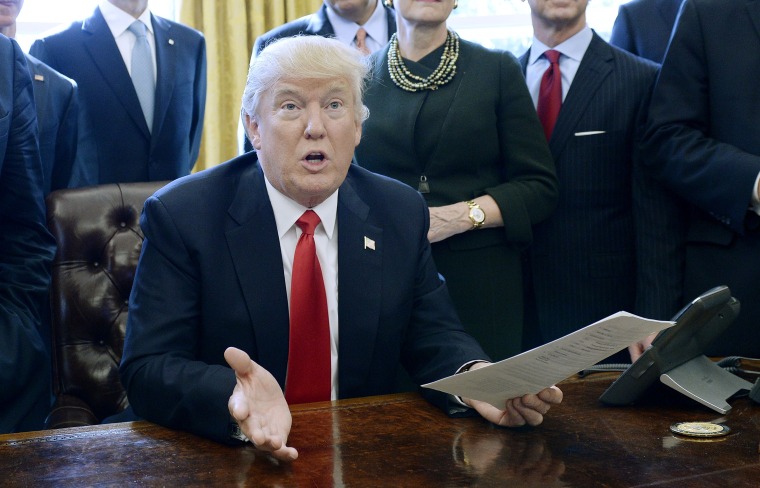It's genuinely difficult to find an angle to the House Republicans' "Nunes memo" that helps its intended beneficiary: Donald Trump. Every key argument the president and his allies hoped to advance has fallen apart, and after weeks of over-the-top hype, Republicans are actually worse off than they were before the previously classified materials were released to the public.
In fact, over the weekend, the memo's credibility actually managed to move backward. The New York Times, Washington Post, and Wall Street Journal each reported independently that the FBI did, in fact, notify a FISA judge to the political motivations surrounding Christopher Steele's dossier. (The underlying allegation from Trump's allies is wrong -- information from politically motivated sources can be used to obtain a warrant -- but the underlying charge is now dubious.)
Even if you strip the Republican memo of its context and ridiculous motivations, and consider it solely as a document intended to highlight an alleged FISA court abuse, the document fails miserably.
It's against this backdrop that the president declared that he's been "vindicated."
"This memo totally vindicates 'Trump' in probe. But the Russian Witch Hunt goes on and on. Their was no Collusion and there was no Obstruction (the word now used because, after one year of looking endlessly and finding NOTHING, collusion is dead). This is an American disgrace!"
Oh dear.
1. The memo in no way vindicates Trump in the Russia scandal -- a point even several Republicans now concede.
2. Given the criminal cases against four former members of the president's team, it's a little late to dismiss the investigation as a "witch hunt."
3. There's all kinds of evidence of collusion.
4. There's all kinds of evidence of obstruction.
5. Trump's grammar, use of quotation marks, and capitalization of random words is bizarre for an American adult in a position of authority.
But despite these details, there's no reason to believe reality will have any meaningful bearing on the president's understanding of current events. Indeed, we've seen this movie before.
In early March, Trump told the public that he'd "just found out" that former President Obama illegally tapped his phones at Trump Tower before the presidential election. "This is Nixon/Watergate," the Republican said. "Bad (or sick) guy!"
As regular readers may recall, two weeks later, as it became clear that the confused president had relied on a nonsensical report from a right-wing website, Trump nevertheless told reporters he felt "somewhat" vindicated about his conspiracy theory, thanks to support from House Intelligence Committee Chairman Devin Nunes (R-Calif.).
Trump, of course, hadn't been vindicated. On the contrary, his entire conspiracy theory had been thoroughly discredited, and he accused his predecessor of a felony for no reason. But in the president's mind, it was clear he'd been right from the start.
And nearly a year later, here we are again, watching Trump once again claim vindication, reality be damned.
